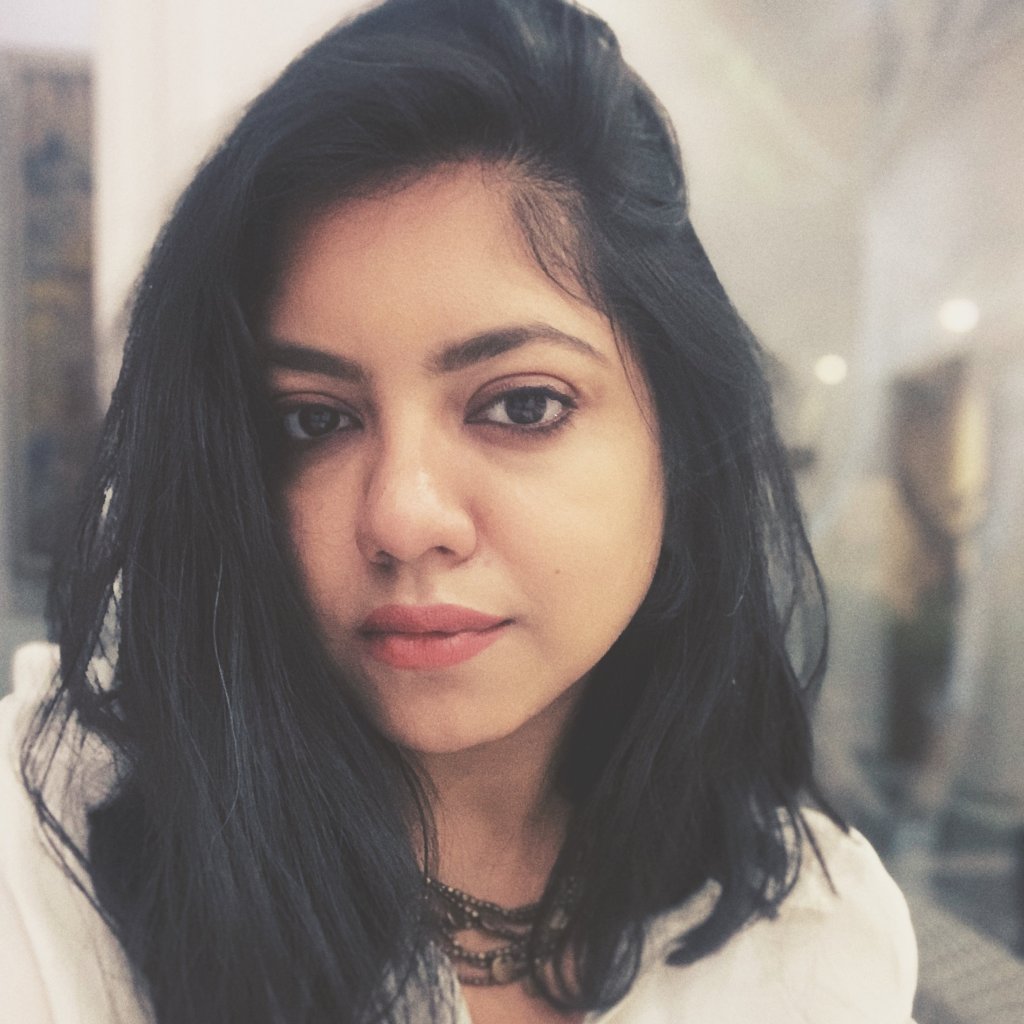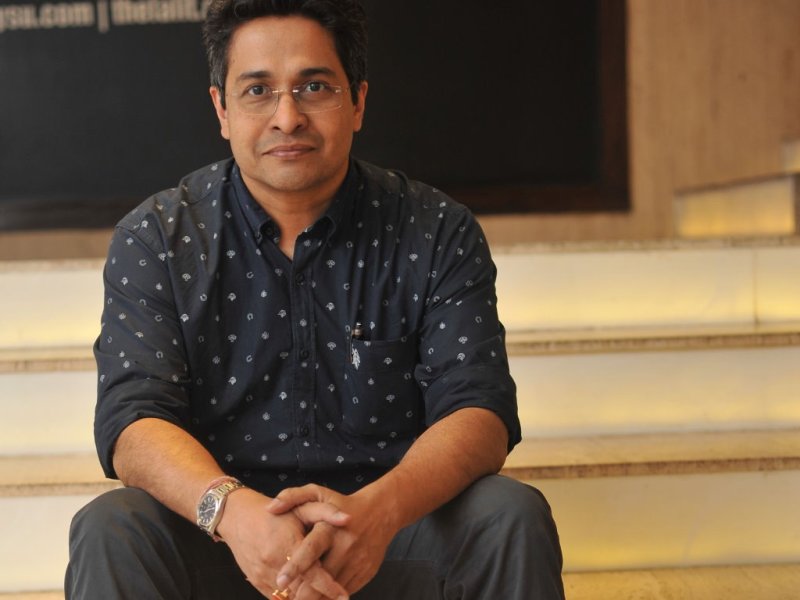Delhi-based Arunima is a marketing and communications specialist with over 15 years of experience across journalism, publishing and digital advertising. Currently a senior account director with Moe’s Art, she has earlier worked with Doordarshan News and the Times Group, and managed PR and communications for Amazon. An excellent writer (see here), she’s written for Hindustan Times, The Hindu, Femina, Time Out and National Geographic Traveller among others. Recently, she started a book club on Instagram called the Dokusha Book Club (@dokusha.bookclub), for those who love to read Japanese literature that’s been translated to English. Now, being Japanophiles to the core, we caught up with Arunima for a quick chat about her work, her writing, her interest in Japanese literature and her favourite books and authors.
You have worked in journalism, advertising and PR. Of these, what is it that you enjoy most? What have been some work-related highlights in the last 10-15 years?
I love journalism the most. If I had the option, I’d be a full-time journalist. Sadly, it doesn’t pay very well and there is hardly any autonomy to write the kind of stories one wants to write. Venturing into PR after journalism was trying at first but I was lucky to be working in a book publishing house, an industry that I absolutely fell in love with. I’ve had a chance to work with one of the best publishing houses in the country (Westland Books) where I’ve worked alongside some excellent colleagues and authors.
Being an independent journalist and a full-time PR professional is like two sides of the same coin; both the fields are symbiotic to each other and I feel having experienced both sides, it’s given me a wholesome perspective on how to manage expectations at both ends, the client side as well as the agency side.
From working with award-winning literary authors like Perumal Murugan, TM Krishna, Anita Nair to commercial authors like Amish Tripathi, Chetan Bhagat, and Preeti Shenoy, from prominent celeb faces turned authors like Smriti Irani, Kabir Bedi, and VVS Laxman to leading names in business like Ambi Parmeswaran and Parmesh Shahani, it has been a rich learning experience for me. Representing these exemplary authors in whatever small way that I could has been one of the highlights of my career.
You have written for leading newspapers, magazines and websites. What kind of stories do you like doing? As a younger person, in school and college, did you always read extensively? How have your reading preferences changed and evolved over the years?
When it comes to journalism, I really enjoy doing features around book and publishing trends (for example I am currently working on an exhaustive story around Japanese literature translated into Indian languages), or interviewing international authors. Some favourites are French-Moroccan author Leila Slimani and Booker Prize winning translator Daisy Rockwell.
I didn’t have the quintessential library in my home while growing up. In fact, unlike other Bengali families, my parents, relatives or cousins weren’t into literature at all. So, I read a lot of embarrassing commercial fiction (Daniel Steel and the likes) by borrowing books from the school library. Later, when I studied English literature in college, I discovered the real deal. Virginia Woolf, Sylvia Plath, Gabriel Garcia Marquez, Derek Walcott, Ezra Pound, the Bronte sisters, Mary Shelley, et al. I was especially drawn to modern European literature – works of Jean Genet, Bertolt Brecht, Franz Kafka, Henrik Ibsen, and the likes.
Over the years, I have discovered and read a lot more Indian authors, and a lot more women authors among them. I’ve also taken a keen interest in translations – both foreign and Indian languages. We have an astounding range of writers and poets in India who I feel are still undiscovered by the masses.
You review a lot of books, and quite a diverse range of books. Personally, what kind of books do you enjoy reading most? Any favourite genre? Favourite authors?
I will always prefer a good translation over anything else. Some of my favourite authors include Han Kang, Mieko Kawakami, Elena Ferrante, Yōko Ogawa, Dorthe Nors, Olga Tokarczuk, among others. I also love well-written travel narratives and Peter Hessler is one of my favourite writers in that genre. Among Indian travel non-fiction, I highly recommend Samanth Subramaniam’s Following Fish and Srinath Perur’s If It’s Monday It Must Be Madurai.

Tell us about your interest in Japanese literature? How did you first get started with reading Japanese authors’ translated works?
Sputnik Sweetheart by Haruki Murakami was the first Japanese book I chanced upon and I found it absolutely enthralling. I know Murakami is overrated and some people also tend to find his works inferior to other literary authors’ works per se, but I feel his contribution to making Japanese literature popular across the world has been crucial. You can say he has westernized Japanese literature and through him, readers have been able to identify and explore more Japanese authors, classic as well as contemporary. During my interviews with translators, I have discovered that Japanese books in English sell more than other language books, at least in India.
What was it that inspired you to set up Dokusha Book Club? What kind of response did you get for this? Do you think there is a fairly large set of readers in India who appreciate Japanese literature? Any plans for hosting offline events for club members?
I have a soft spot for translations and Japanese literature translated into English is something that I’ve been reading for a very long time now. While there are many online and offline book clubs promoting reading / books in general, I’d never come across something dedicated to Japanese literature. But I did know that there is a lot of interest in it. (I have friends with whom I’ve discussed these books and authors individually).
Some months ago, I chanced upon an article about Japanese bookish words, and discovered the word ‘dokusha,’ which means a reader. It was the same time I had reviewed Mieko Kawakami’s latest book and I thought why not build a community of readers who not only loved reading, but specifically loved reading Japanese literature. I myself haven’t read all of it (you possibly can’t in a lifetime) so it’d be a nice way of discovering new books for me too.
In less than a month’s time of starting the club in December 2022, I had received over 120 registrations – from not just metros like Delhi, Mumbai, Kolkata, Bangalore and Hyderabad but also places like Dehradun, Odisha, Jorhat, Guwahati, Cuttack – and 1,500 followers. Sayaka Murata’s debut short story collection in English – Life Ceremony – had just come out and I thought of beginning the year with a literary fiction; it was our pick for January 2023.
I do wish to hold a book club meet sometime in the summer perhaps, but I’ll have to figure out the logistics. I also plan to launch an e-magazine and collaborate with independent bookstores for exclusive deals for our book club members.
You have studied French. Do you also read translated works of French authors? Any favourite French authors? Any thoughts on how, and in what ways, Japanese literature is markedly different from French works from the same period?
I have read translated works of select French authors back in college – Simone De Beauvoir, Albert Camus, Jean Genet – and still do. Among the contemporary French authors, I love Marie Darrieussecq’s books, especially her novella Pig Tales, which is an excellent satire on the constant male gaze that women experience. I think French literature is inspired a lot from its politics; it’s very nuanced and extremely sharp in its commentary of the society as its people. Japanese literature, on the other hand, is heavily inspired from the country’s history – wars and natural calamities – and while they too write about the society and its people, the commentary is daringly undisguised.
What is your view of contemporary Indian authors (those who write in English)? Any favourites there? Any writing that you think is remarkably good?
I absolutely love contemporary Indian literature. I think this is best time for Indian authors to flourish, especially literature translated from Indian languages. We are finally celebrating Indian writing and it’s wonderful to see the diversity in the range of books being published. Among Indian writers writing in their native languages, I find the voices of Perumal Murugan, Geetanjali Shri, KR Meera, Manoranjan Byapari, Vinod Kumar Shukla… the list is endless really. And some of my favourites who write in English are Jerry Pinto, Nisha Susan, Anukriti Upadhyay, Anuradha Roy, Nilanjana Roy, Jane Borges, among many, many others.
Would you like to name the three most memorable books you’ve read in the last 1-2 years? Why do these stand out among others? Any books that are on your must-read list for 2023?
Gabriel Garcia Marquez’s son wrote a deeply personal memoir about his parents called A Farewell to Gabo and Mercedes which, according to me, is a blessing for someone who loves literature. I also enjoyed reading Jhumpa Lahiri’s Whereabouts which is truly a lesson in writing about solitude without making it banal. I also read both of Douglas Stuart’s novels – Shuggie Bain and Young Mungo – and they became absolute favourites.
I don’t believe in TBR lists because I end up reading a lot of books for work too but I am currently reading Steppenwolf by Hermann Hesse and I’m finding myself pleasantly transported to the world of personality crises and amorous desires.
See some of Arunima’s work here
More Stories:
My Life With Books: Sachin Rao
Based in London, Sachin is a commercial features Editor at Guardian News & Media. One of the best writers/editors in the business, he has worked in the UK since the mid-2000s. Before that, he was based in Bombay, working with leading newspapers like Business Standard, Indian Express and Mumbai Mirror. With an eclectic range of…
My Life With Books: Srinivas Krishnan
A legend in his own lifetime, Mumbai-based Srinivas has been an automotive person in the communications business or a communications person in the automotive business all along – advertising, journalism, corporate and public relations. He is currently senior vice president of the Mobility Practice at a leading PR agency, while also a writer and columnist…
My Life With Books: Dr Radhika Praveen
With a PhD in creative writing, Dr Praveen is based in Milton Keynes, in the UK, where she lives with her husband and two boys. She misses her life in India where she hopes to return to one day, with her family. She likes to think of her life as a book, with chapters for…
Reading By Design: Professor G.V. Sreekumar
G.V. Sreekumar is Professor and former Head of IDC School of Design at IIT Bombay and his specialisations include Typography, Calligraphy, Publication Design, Information Graphics, Design Pedagogy, and Visual Semantics. Prof. Sreekumar studied Applied Art at M.S. University, Baroda, and Visual Communication at IDC, IIT Bombay. Since the year 2000, he has been a faculty…
My Life With Books: Marco D’Souza
Based in Gurgaon, Marco is a career journalist who jumped to corporate communications and now works for Google. A consummate geek and a fan of eBooks and the Kindle Paperwhite, he loves rediscovering the wonders of life with his nine-year-old daughter. We talk to Marco about his love for reading and his favourite books and…
My Life With Books: Avik Chattopadhyay
Gurgaon-based Avik is a senior automotive industry professional who’s worked with Maruti Suzuki, Apollo Tyres, PSA Peugeot Citroën and Volkswagen among others. In recent years, he’s struck out in new directions and is co-founder at Expereal India and Emote AI. Avik has an eclectic range of interests and enjoys reading across diverse genres. His favourite…







